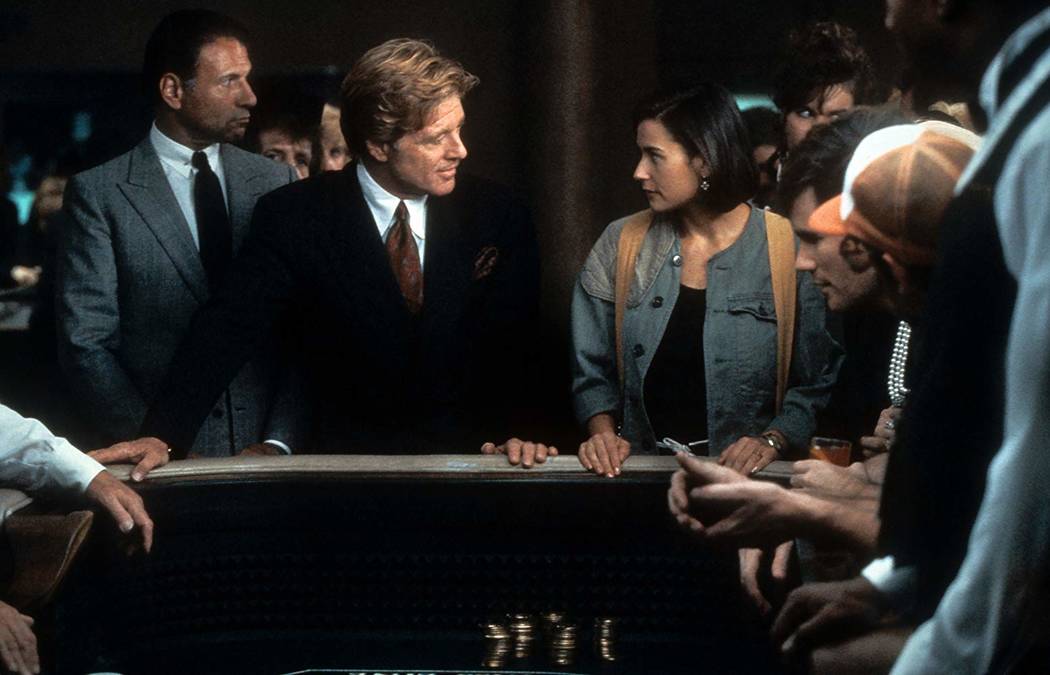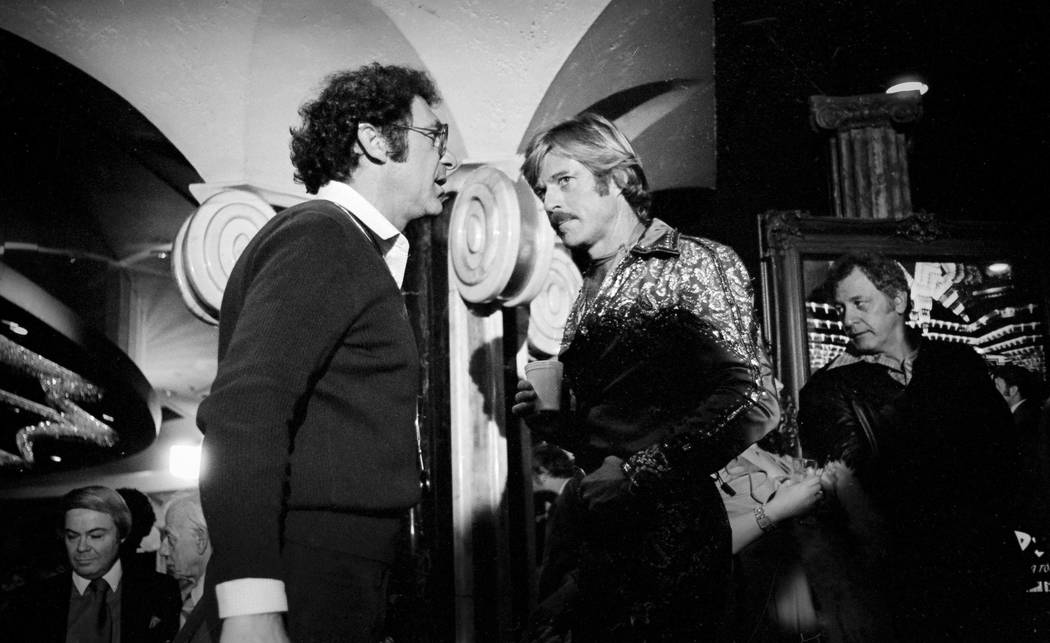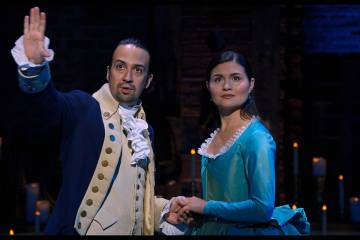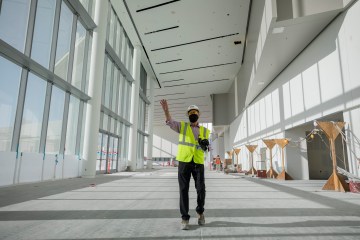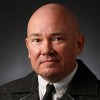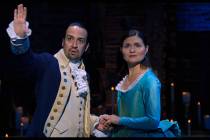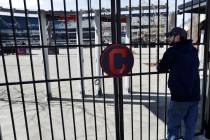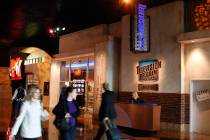Looking back at Robert Redford’s made-in-Las Vegas movies
Robert Redford married Lola Van Wagenen in Las Vegas in 1958.
Over the years, he returned to champion environmental causes and fought to protect wild horses.
His professional responsibilities in Las Vegas, though, were slightly more sensational. Like the time he stole a $12 million thoroughbred at Caesars Palace and rode it down the Strip. Or when he paid $1 million to sleep with Demi Moore at the Las Vegas Hilton.
With the 82-year-old Hollywood icon having suggested that this weekend’s “The Old Man & the Gun” will be his last appearance on the big screen, here’s a look back at his made-in-Vegas features, “The Electric Horseman” and “Indecent Proposal.”
‘The Electric Horseman’
In 1978, the idea of filming a movie inside a casino was still so foreign, The Washington Post sent a reporter to describe this wild notion to its readers.
“No location, not even New York City’s unbridled streets, can be as cumbersome as the lobby and environs of Caesar’s (sic) Palace,” Jacqueline Trescott wrote.
“The sequined and polyestered crowd at Caesar’s (sic) will not only spread the word about the film, but about the hotel as a place where exciting things are happening.”
Few things were as exciting that November and December as when Redford, dressed in a suit covered in glowing light bulbs as rodeo star Sonny Steele, rode a horse across the casino floor, out the doors and down the sidewalk past the Stardust, Westward Ho, Slots A Fun and Circus Circus before unplugging and disappearing into the night.
Steele had gone from having his name on the marquee at Madison Square Garden to hawking Ranch Breakfast cereal while riding a mechanical horse at the grand opening of another Pinto Mart. The honest-to-goodness cowboy, who was more accustomed to sleeping by a campfire than in a fancy hotel, was now being paid to dress — in purple, gold and green — like Rip Taylor posing as a cowboy for Mardi Gras.
When Sonny shows up drunk for an appearance at a trade show at Caesars — “Whew, God, they got pretty girls in Las Vegas!” — his pal Wendell (Willie Nelson, making his acting debut) tries to keep him away from the press. After hearing that Sonny doesn’t want to give interviews, a feisty network TV reporter (Jane Fonda) doggedly pursues the story behind his reluctance. Because that’s the way movies work.
By the time Sonny realizes the prized racehorse Rising Star, his fellow corporate mascot, is being mistreated and decides to liberate him, moviegoers had a good long look at pretty much everything Caesars Palace, in all its disco-era glory, had to offer.
As for filming on the casino floor, though, director Sydney Pollack, who’d worked with Redford on “The Way We Were,” “Jeremiah Johnson” and “Three Days of the Condor,” sounded less than thrilled.
“It was like being in a nuthouse,” he told The Post. “The casino manager was going crazy. I couldn’t see. I couldn’t hear. I think I was hysterical.”
‘Indecent Proposal’
When it comes to accommodating movie crews, casinos tend to contort themselves in ways that would make a Cirque performer cringe.
That wasn’t exactly the case in June 1992 when the Las Vegas Hilton welcomed the cast and crew of “Indecent Proposal,” the erotic drama about Los Angeles architect David (Woody Harrelson) and his real estate agent wife, Diana (Moore), who come to town to try to gamble their way out of near bankruptcy.
For the scene in which Redford’s billionaire John Gage tries to impress Diana with a $100,000 baccarat wager, director Adrian Lyne (“Fatal Attraction,” “9½ Weeks”) secured the Hilton’s high-roller lounge. “Before we started shooting, they said, ‘If a high-roller turns up, you have to go,’” Lyne revealed on the DVD commentary track. “Happily, that didn’t happen.”
When Gage first lays eyes on Diana, she’s in a hotel boutique, admiring a $5,000 dress she certainly can’t afford, so he offers to buy it. “I’ve enjoyed watching you,” he tells her. “You’ve earned it.” It’s creepy coming from Robert Redford; imagine how sleazy it would sound from anyone else.
“I never quite got over the fact that I was working with Robert Redford,” Lyne said on the commentary. “I always remember he would walk on the set and I wouldn’t actually see him … but I would know that he had walked on the set, because there would be a hush. The people would stop talking on the set. They never stopped talking for me, but when Robert Redford walks in, they would stop.”
In just an hour’s worth of slots and craps, David is halfway to the $50,000 they need to save their house and the dream home he’s building. “I figure about two hours tomorrow,” he says, “we’ll be home free.”
And that, folks, is why we have casinos.
After losing almost everything and licking their wounds at the Huntridge Diner, David and Diana return to the Hilton, where Gage makes the titular proposition: He’ll give the couple $1 million for a night with Diana.
It’s insulting, really. Not the offering to pay for sex with a married woman, but how little he was willing to part with. The dude just had Diana place a million-dollar bet for him on one roll of the dice. That’s the equivalent of a regular guy announcing, “Your wife’s pretty. How’s 50 bucks sound?”
That proposal was the lasting takeaway for many viewers.
For me, it’s the scene in which David is consoled by his buddy (Oliver Platt) in the hotel’s Benihana Village while an animatronic tree hilariously sings “Help Me Make It Through the Night.”
It’s the sort of thing that will haunt your dreams, and it’s basically what “Fear and Loathing in Las Vegas” would have been like had Hunter S. Thompson waited until the ’90s to visit.
Lyne shared one memory of filming that scene, and it’s a succinct one: “Awful place.”
Related
How Robert Redford changed the name of a Las Vegas casino
Contact Christopher Lawrence at clawrence @reviewjournal.com or 702-380-4567. Follow @life_onthecouch on Twitter.



